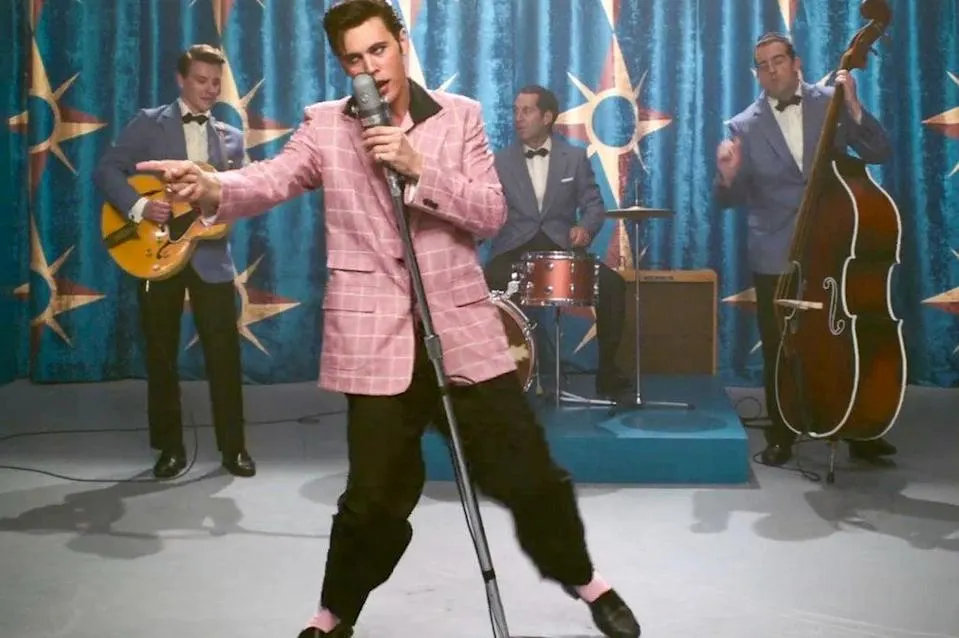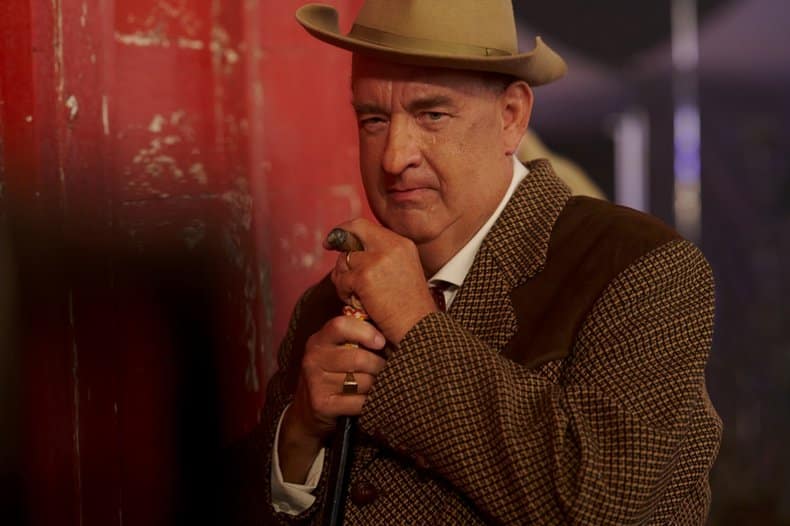Read also:
How to Watch FX Live Without CableHow To Watch AMC Without CableHow to Watch ABC Without CableHow to Watch Paramount Network Without CableBaz Luhrmann’s biopic of the King is as garish and over the top as you’d expect, but has a heart thanks to Austin Butler.
In the opening seconds of Baz Luhrmann’s Elvis, viewers are blasted with the sight of the Warner Bros. logo – a variant glowing in gold and crimson, practically exploding with flair and moving parts – accompanied on the soundtrack by a remix of “Suspicious Minds.” Within the first few minutes, sweeping shots of Las Vegas clash with Ocean’s 11-style split screens, and the editing juggles between slowmo and cranked-up fast motion, in classic Luhrmann fashion.
The movie begins suddenly in a flash of decadence and doesn’t relent for the next 2 hours, 40 minutes. It’s a film that’s loud and excessive and bloated and colorful and it fits its subject – the loud, excessive, bloated, colorful, hip-shaking, pill-taking, groundbreaking musical legend Elvis Presley – as perfectly as a bedazzled jumpsuit. In its narrative, Elvis is not redefining the rock star movie by any means. If you know the basics of the story of Elvis Presley, you will not be surprised by what happens – but how it happens is what makes the real difference.
Comparing Elvis to, say, a popular down-the-middle success like Bohemian Rhapsody is a bit like saying Dick Tracy and Donnie Brasco are similar because they’re both about cops. There is a refreshing, exciting style here – a very deliberate unreality to this telling of the tale. Spiritually, it has more in common with Robert Altman’s Popeye than with most biopics. At no point does Luhrmann try to convince you you’re looking at a real Mississippi backroad, a real Memphis nightclub, even a real Hollywood backlot. Instead, it is theatrical, even carnivalesque all the way though, starting with the leading man.
Austin Butler, given a ludicrously large set of blue suede shoes to fill, rises to the occasion marvelously, but in a peculiar way. His vocal imitation of Presley, both in music and in dialogue, is so uncannily accurate that it’s near impossible to tell when he’s singing or lip-synching. He has the swagger, the movement, the stage presence. Yet there’s always a curious and fascinating tension on display when he’s on screen, especially in the last act of the film. In some of the film’s climactic sequences, Elvis should theoretically be an overweight, drugged out mess, a walking midlife crisis under neon lights.

Except Butler’s Elvis never quite seems to fit the bill in that sense – he’s still so young, so handsome, so vivacious, even if under strain. This should be a mistake, except the effect is that instead of watching Elvis Presley the human being who aged, decayed, and died, you’re watching something else: the essence of Elvis rather than just the man as he existed in the moment. He’s like a cast member in the Wachowskis’ Cloud Atlas, reappearing in different eras in different guises, but the same soul underneath it all.
Speaking of that Wachowski film, the other lead character in Elvis is Presley’s manager, “Colonel” Tom Parker, played by Tom Hanks, in a performance that recalls the most vaudevillian roles of his career – the quack doctor in Cloud Atlas for sure, but also his Southern dandy in The Ladykillers. These are not the performances that people tend to love from Hanks, yet he throws himself at this one with undeniable boldness, to mixed effect. Parker was a loathsome man by all accounts, a greedy fraud who bilked his client out of millions over a multi-decade career of psychological manipulation and dirty tactics. And Luhrmann and Hanks present an appropriately repugnant recreation of The Colonel – Hanks is stuffed into a fat suit and layers of latex jowls (which are obviously fake) and given a bizarre approximation of what apparently is a Dutch accent.
Hanks’s performance is equally as grotesque as the external trappings; it’s big, it’s noisy, it’s attention-grabbing. He comes off a bit like an unholy fusion of Mike Myers’s Goldmember and Fat Bastard characters from Austin Powers. This could sink the film, and it certainly does try one’s patience at times, but more than Butler, Hanks conjures an air of total artifice that lets the audience know what they’re getting into. If this were a serious straightforward drama, that would be a catastrophe, but this is not that: It’s mythic and unreal, a funhouse mirror version of American pop culture – a story full of sound and fury told (literally) by an insane European carnival barker.

Like most of Luhrmann’s films (apart from Moulin Rouge!, his masterpiece) the maximalist style does cause some of the human element to be buried even when it’s being really entertaining. But Austin Butler makes it come alive when he’s given center stage, and without being lost in the iconography, he conveys a darkness in Presley that is factual but often hard to square with the charming guy you see in the old videos. The bitterness, the paranoia – he wonderfully shows that side of Elvis in addition to the “aww shucks” quality.
Even at its length (which is excessive but not in a way that’s fatal) Elvis picks and chooses which aspects of the life story it wants to probe. The racial implications of Presley’s career are not overlooked, and screen time is given to Big Mama Thornton, B.B. King, Arthur Crudup, Little Richard, Fats Domino, and numerous other Black artists who were Presley’s influences and peers, and who never got the success he did. But his relationship with his wife Priscilla, which began and ended in very ugly ways, is soft pedaled (the film appears to have gotten the approval of the real Priscilla, for whatever it’s worth).
As one would expect with Luhrmann, the master of the big spectacle, the chaotic editing, the herky-jerky pacing, it’s an awkward, flawed film, undeniably. But as a kind of electrified Cirque du Soleil staging of a modern legend with lots of style, it’s highly entertaining and it finds substance in its subject’s superficial gloss. In the final minutes of the film, Luhrmann plays a clip of the real Elvis speaking about his life and his dreams, and it’s a revealing piece of footage. That clip would mean nothing if Luhrmann and Butler hadn’t found a soul underneath the glitz and the glamor. But because they did, it’s heartbreaking – a fitting end to an endearing mixture of sparkle and sincerity.
Elvis premieres in theaters June 24th.